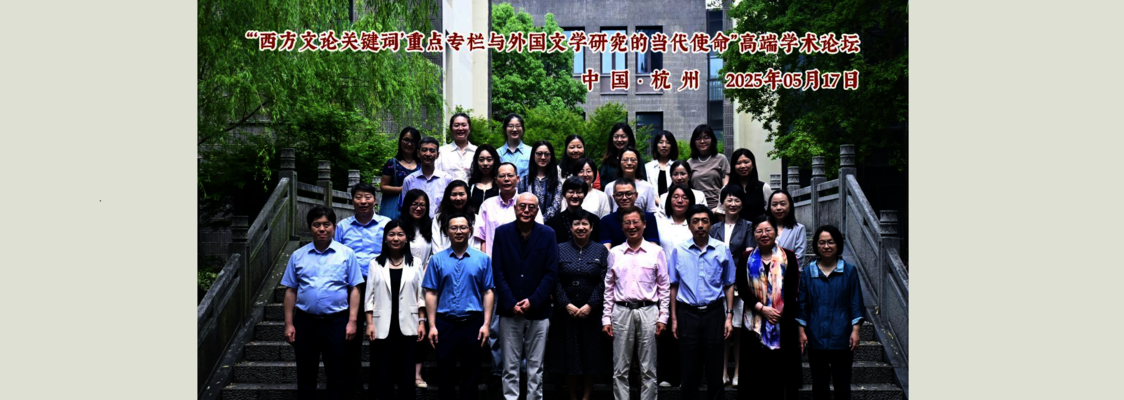- “如画”何以“崇高”:也谈罗斯金审美趣味中的
- 外语学习者同译词学习“同时僵化”假设
- 安妮·普鲁“怀俄明三部曲”中反怀旧的哥特西部
- 哈姆莱特延宕内涵再审视
- 日汉翻译系统探析
- Navigating Advanced Academic Writing and Pub
- AI对文学的赋能与挑战
- 《美国牧歌》中双重记忆的罅隙与身份错位——兼
- Thomson's Palemon and Lavinia, Iconic Narrat
- Towards a Better Understanding of Explicit a
- 福柯与控制论:系统、控制和治理
- 研究体系与学术创新
- A Study of the Caribbean Think Tanks
- 融通中外—外交话语与翻译艺术
- 特多中华总会的初心与使命
- 讽寓抑或隐喻?——《聊斋志异》中的幽冥世界与
- 国际组织中的议程设置--以小岛屿发展中国家作为
- 学科建设的新任务和个人发展的新规划
- 汉语文学谱系与世界文学空间
- 恶作剧者:从文学话语到批评阐释学-----评杰拉
时间:2024年11月11日15:00
地点:恕园12-203
主讲内容:
The semantics-pragmatics interface debate is about how much context the linguistic signs need in order for them to be meaningful in the communicative process. The presentation argues that analysis of intercultural interactions requires us to reevaluate the traditional understanding of the semantics-pragmatics distinction. A historical view on the issue shows that in the beginning, there was recognition of the code alone. Then, Grice taught us that the linguistic code is routinely accompanied by pragmatic inference. Maximalists, such as Relevance theoreticians, tipped the balance in favor of inference over code, and previous research on intercultural communication "reasonably" assumed that in the absence of a full command of a common code lingua franca users would rely on pragmatics of the target language even more heavily. However, the thesis offered in this talk changes the balance of power between semantics and pragmatics, at least for intercultural interactions. It argues that lingua franca speakers rely more on semantics than pragmatics, that is, they communicate their message by code more than by inference. So, the gap between 'what is said' and 'what is conveyed' is minimized in such encounters. This seems like impoverished pragmatics. But a closer look shows that in fact pragmatics is invigorated in ELF rather than impoverished. It changes its nature in that instead of relying on the existing conventions, norms and frames of the target language interlocutors create their own frames, formulas and temporary norms. There is pragmaticization of semantics, which is a synchronic, one-off phenomenon in which coded meaning, sometimes without any specific pragmatic enrichment based on the target language, obtains temporary pragmatic status.
主讲人简介:
Istvan Kecskes is a Distinguished Professor of the State University of New York at the Albany campus. He is the President of the American Pragmatics Association and the CASLAR (Chinese as a Second Language Research) Association. He is the founder and co-director of the Barcelona Summer School on Bi- and Multilingualism (until 2016), and the founder and co-director of Sorbonne, Paris – SUNY, Albany Graduate Student Symposium.
His book “Foreign language and mother tongue” (Erlbaum 2000, co-authored by his wife, Dr. Tunde Papp) was the first that described the effect of the second language on the first language. Kecskes’ book “Intercultural Pragmatics” (Oxford University Press, 2014) is considered a groundbreaking monograph that shapes research in the field. His latest books are “Key Issues in Chinese as a Second Language” (Routledge 2017), “English as a Lingua Franca: The pragmatic perspective” (Cambridge University Press 2019), “Cambridge Handbook of Intercultural Pragmatics” (CUP 2022). The book “The socio-cognitive approach to communication and pragmatics” (Springer 2023) is a summary of his socio-cognitive theory of pragmatics that has received great attention all over the world.
Prof. Kecskes is the founding editor of the journal “Intercultural Pragmatics” and the Mouton Series in Pragmatics as well as the bilingual journal “Chinese as a Second Language Research”. In 2020 he established a new book series for early career scholars “Routledge Research on New Waves in Pragmatics”. He received a Senior Fellowship from the Rockefeller Foundation Research Center in Bellagio, 2004, a Senior Fellowship from the Mitteleuropa Foundation, Bolzano, Italy, 2005, a Honorary Professorship from Zhejiang University, 2009, Yunshan Chair Professorship from Guangdong University, 2011, a Distinguished Visiting Professorship from Monash University, Melbourne, 2013 and a Guest Professorship from the University of Messina in May, 2017, 2019 and 2022. He also received an Honorary Doctorate from The National Research Tomsk State University, Russia in 2021 where a Graduate Student Award was named after him in 2016.







